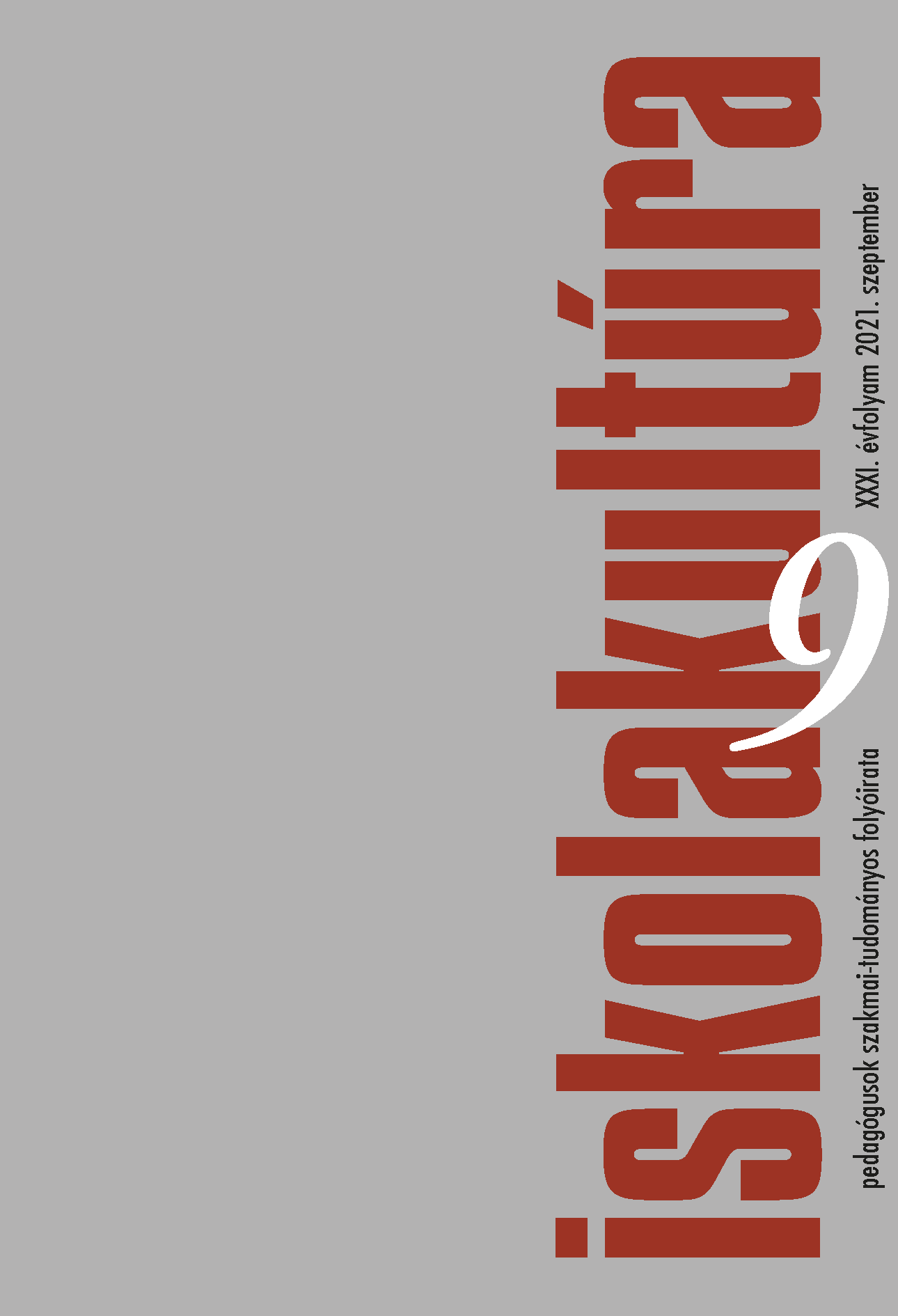Improving social competency by tools from Drama in Education
Main Article Content
Abstract
Social competence is defined in several ways in the literature: a common element of the definitions is the emphasis on the role of communication and collaboration skills. These skills are part of the educational pro-cess; therefore, the possible development of social competence has become an increasingly important topic in public and higher education over the past decade. Schonmann (2005) is a well-known researcher of Drama in Education, who describes 17 different types and implementations of Drama in Education. Furthermore, she highlights that the method of Drama in Education would be a good tool for the development of social compe-tencies in education. Marlok (2003) writes that communication competence can be developed through Drama in Education, as drama involves improving voice tone and posture in addition to verbal tools and has a positive effect on students’ personalities. The aim of this research was to explore how often students, who participated in a talent care drama summer camp and are between the ages of 12 and 16, experienced situations that developed their social competence. The results show that students experienced situations in which an element of their social competence developed at least once a day, but in some cases several times per day. Although our results are not representative, they confirm the statements of the literature concerning that drama plays an effective role in the positive development of social relationships and the development of social competence and that it provides educational added value.
Downloads
Article Details
References
Arsenio, William F. and Lemerise, Elizabeth A. (2001). Varieties of Childhood Bullying: Values, Emotion Process and Social Competence. Social Development, 10(1), 59-73.
Eck Júlia (2015). A dráma helye a közoktatásban és a tanárképzésben. Drámapedagógiai Magazin, 52(2), 5-7.
Gedviliene, Genute, Gerviene, Silvia, Pasvenskiene, Ausrine and Ziziene, Simona (2014). The social competence concept development in higher education. European Scientific Journal, 10(28), 36-49.
Gelencsérné Bakó Márta (2017). A szociális kompetencia fejlesztésének lehetőségei drámapedagógiai módszerekkel a (gyógy)pedagógiai munkában. Képzés és gyakorlat, 15(4), 93-104.
Kempe, Andy (2011). What Dramatic Literature Teaches about Disability. In: Schonmann, Shifra (ed.) Key Concepts in Theatre/Drama Education. Sense Publishers, Rotterdam, 171-176.
Lang, Norma C. (2010). Group Work Practice to Advance Social Competence. Columbia University Press, New York
Lapaire, Jean-Rémi (2019). Testben értett gondolat – Színházi módszerek az oktatásban. Magyar Tudomány, 180(7), 979-987.
Marlok Zsuzsa (2003). Drámapedagógia és nyelvtanárképzés. Iskolakultúra, 2003(6-7), 153-159.
Reitz, Sandra (2012). Improving Social Competence via E-learning? The example of Human Rights Education. Peter Lang Publishing, Bern
Schonmann, Shifra (2011). An Identity Card in the Making: Key Concepts in Theatre/Drama Education. In: Schonmann, Shifra (ed.) Key Concepts in Theatre/Drama Education. Sense Publishers, Rotterdam, 3-12.
Szabó Zsófia (2015). Statisztikai adatok. Drámapedagógiai Magazin, 52(2), 8-13.
Trencsényi László (2015). Egy kutatásról. Drámapedagógiai Magazin, 52(2), 2-4.
Tschannen-Moran, Megan and Woolfolk Hoy, Anita (2001). Teacher efficacy: capturing an elusive concept. Teaching and Teacher Education, 17(7), 783-805.
Zalay Szabolcs (2006). Konstruktivizmus és drámapedagógia. Iskolakultúra, 2006(1), 66-71.

